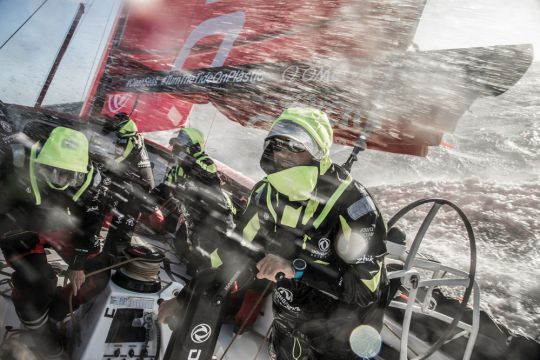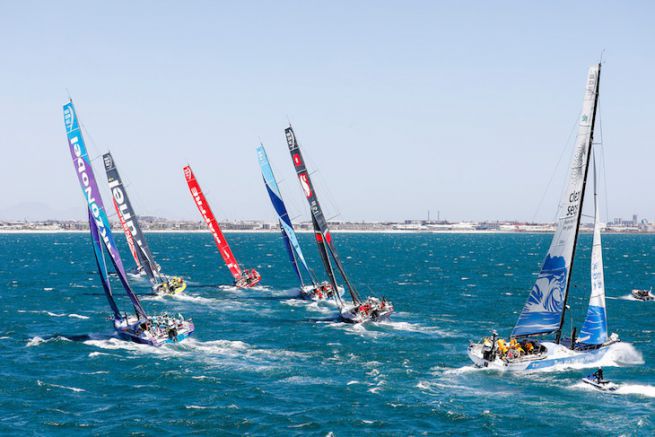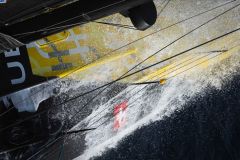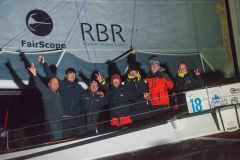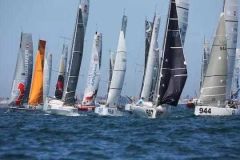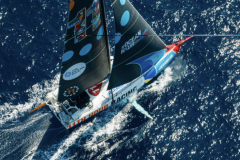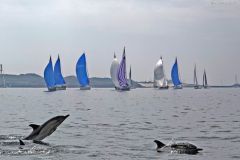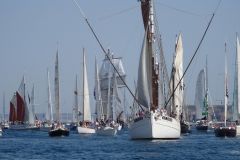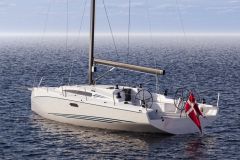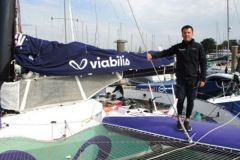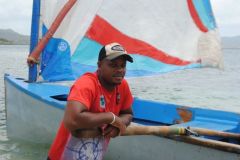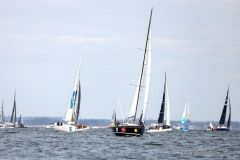An ideal start
After Dongfeng Race Team's victory in the In-Port of Cape Town this Friday 8th December 2017, the fleet of the Volvo Ocean Race continues its journey around the globe. The seven crews set off from Cape Town (South Africa) on Sunday 10th December for a 6,500 mile leg to Melbourne. This is an important stage as it counts double! For this 3rd leg, they are 63 sailors (9 on 5 boats, 10 on Turn the Tide on Plastic, 8 on Sun Hung Kai/Scallywag) and 7 "on-board reporters" from Cape Town to Melbourne.
The departure from Cape Town took place in ideal conditions with 25 knots of wind, like the In-Port two days before. It was Team Brunel who crossed the line first. After the first leg of reaching in 25 knots of south-south-easterly wind, Dongfeng Race Team crossed the first mark of the preliminary course 16 and 21 seconds ahead of MAPFRE and Team Brunel, followed by Vestas 11th Hour Racing, Team Sun Hung Kai/Scallywag, AkzoNobel and Turn the Tide on Plastic.
Charles Caudrelier's crew kept their advantage until the end of this short course before being overtaken by MAPFRE, the first to deploy his J0, the new mainsail on this edition of the Volvo Ocean Race. Once again, the two competitors and favourites in this 2017/2018 edition have engaged in a duel.
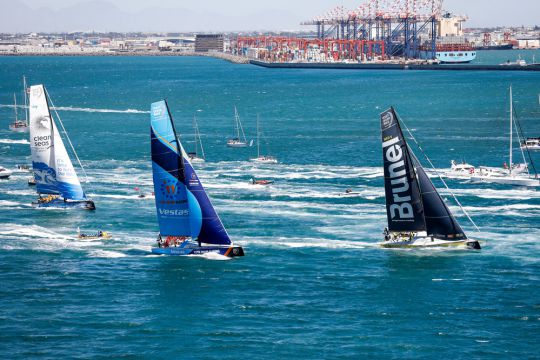
An important milestone
This stage between Cape Town and Melbourne is one of the 3 stages of the race to be counted for double (with Auckland-Itajai and Newport-Cardiff). The stage time will also be reduced (from 4 to 6 days depending on the date of arrival in Australia) and the technical teams will be limited in their interventions on the boat.
The skippers will therefore have to go fast in order to reach Melbourne quickly and collect as many points as possible. But at the same time they will have to be careful not to find themselves without the possibility of intervention. All the more so as leg 4 will also be long, with 6,000 miles towards Hong Kong.
"To finish first, you must finish first, explains Charlie Enright, skipper of Vestas 11th Hour Racing, second in the overall standings after the first two legs. We have a lot of experience on our boat, and we're going to need to rely on that experience in the Deep South: it's not just about points, it's also about the state you arrive in Melbourne, it's very important not to break anything in the tough conditions ahead."
Dee Caffari, Turn the Tide on Plastic, adds: "We're going to have to balance between pushing the boat and getting it there in one piece."
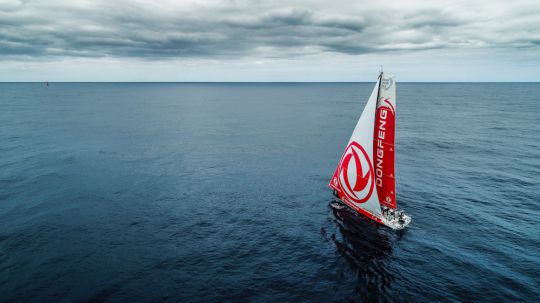
Strong conditions
The Indian Ocean is known for its reputation as a "boat-breaker", with its polar temperatures and large depressions coming from the west. The conditions forecast at the start of the race are proving to be particularly sustained, with a southerly descent in a strong east-southeast wind. The aim is to pick up the first W'ly low, which could generate winds of around 50 knots and seas of 7 to 11 metres.
Conditions known to some Volvo Ocean Race regulars, but discovered by some newbies.
"It's the first time for me, I'm looking forward to it, but as the number one on board, I know I'm going to be very wet a lot! I've been trading a lot with Charles (Caucasus) and Stu (Bannatyne) who have experience, to make it as safe as possible for me." explains Jack Boutell who, on the Dongfeng Race Team, will be sharing this number one role with Kevin Escoffier.
The latter concludes, about this first stage of the Deep South: " It's practically a coefficient 3 stage in the end. Depending on how long it will take us to get to Melbourne, we'll have between 4 and 5 days of rest - which is very short for this type of race... you don't leave having recovered 100%. Doing a bad result in Melbourne would also take psychological energy, so it's really a step to take in the right direction."
